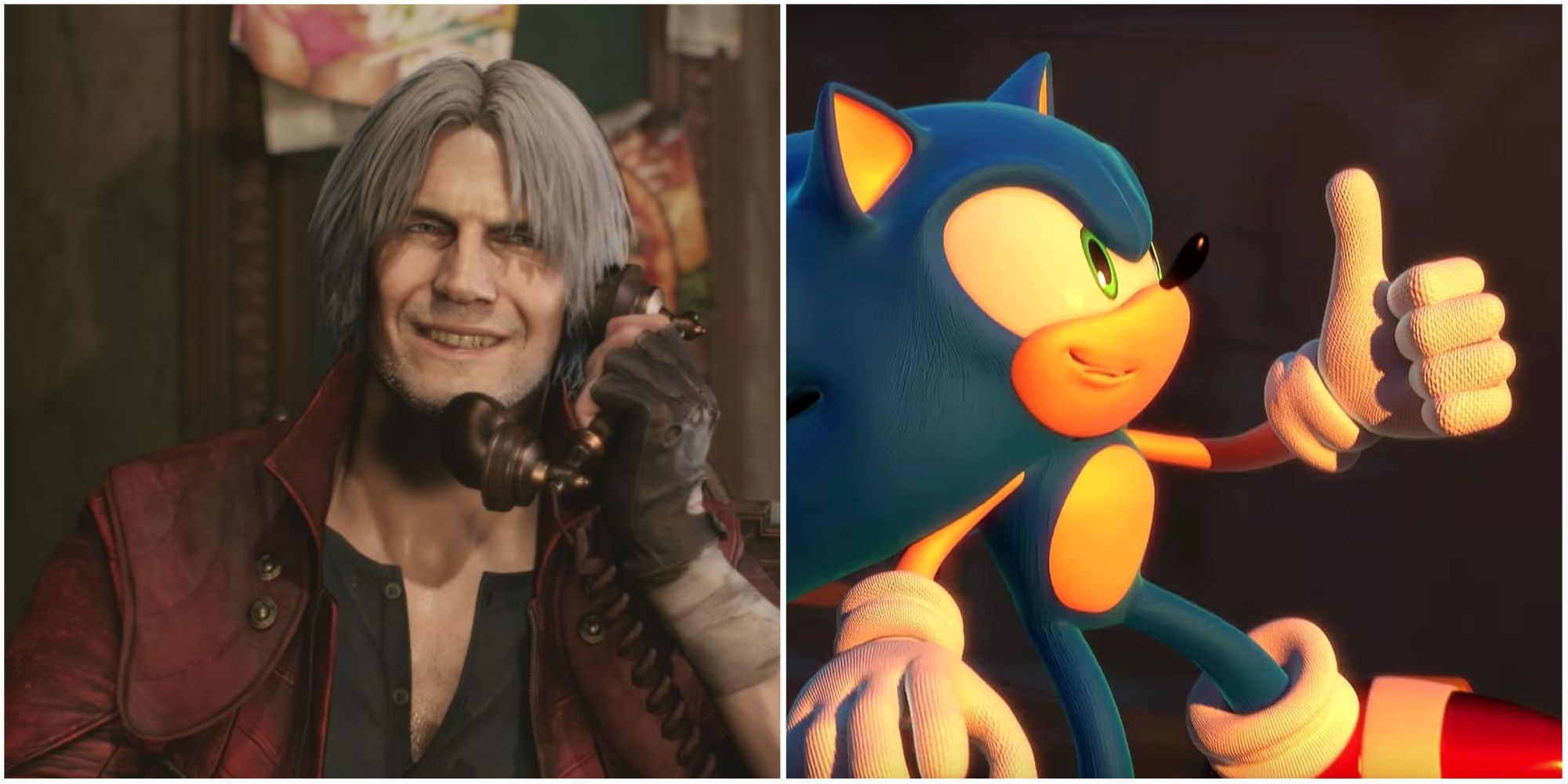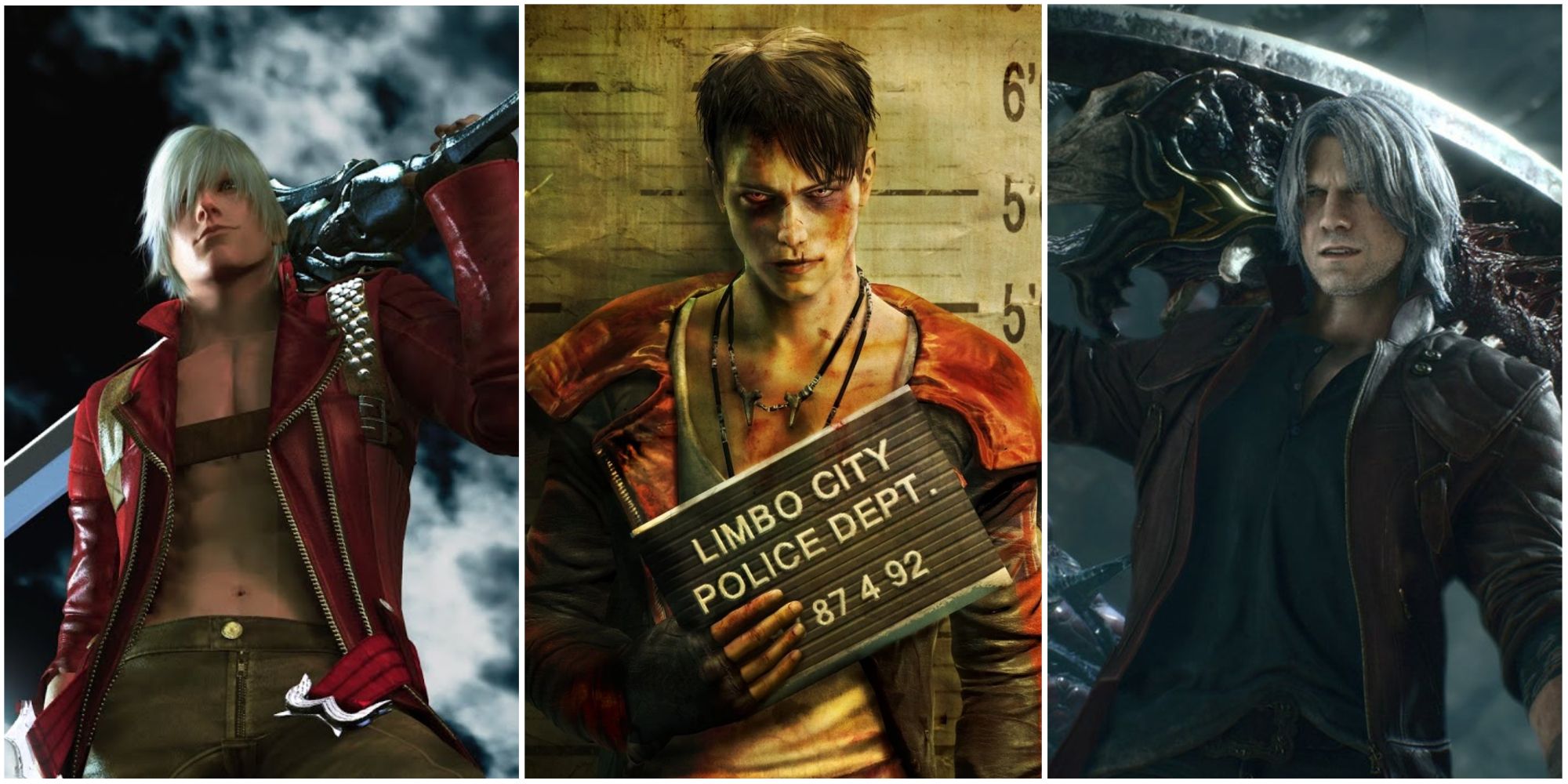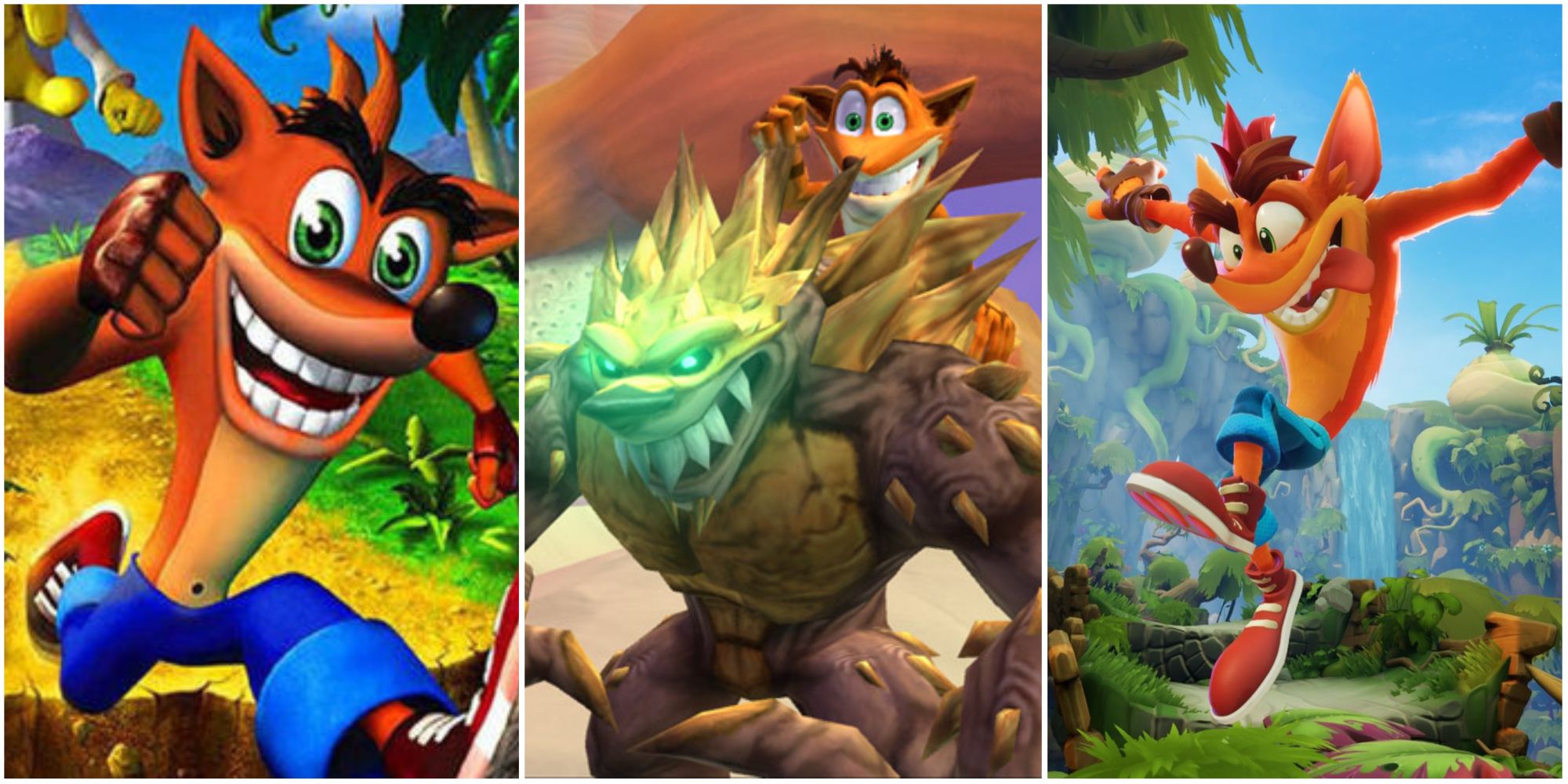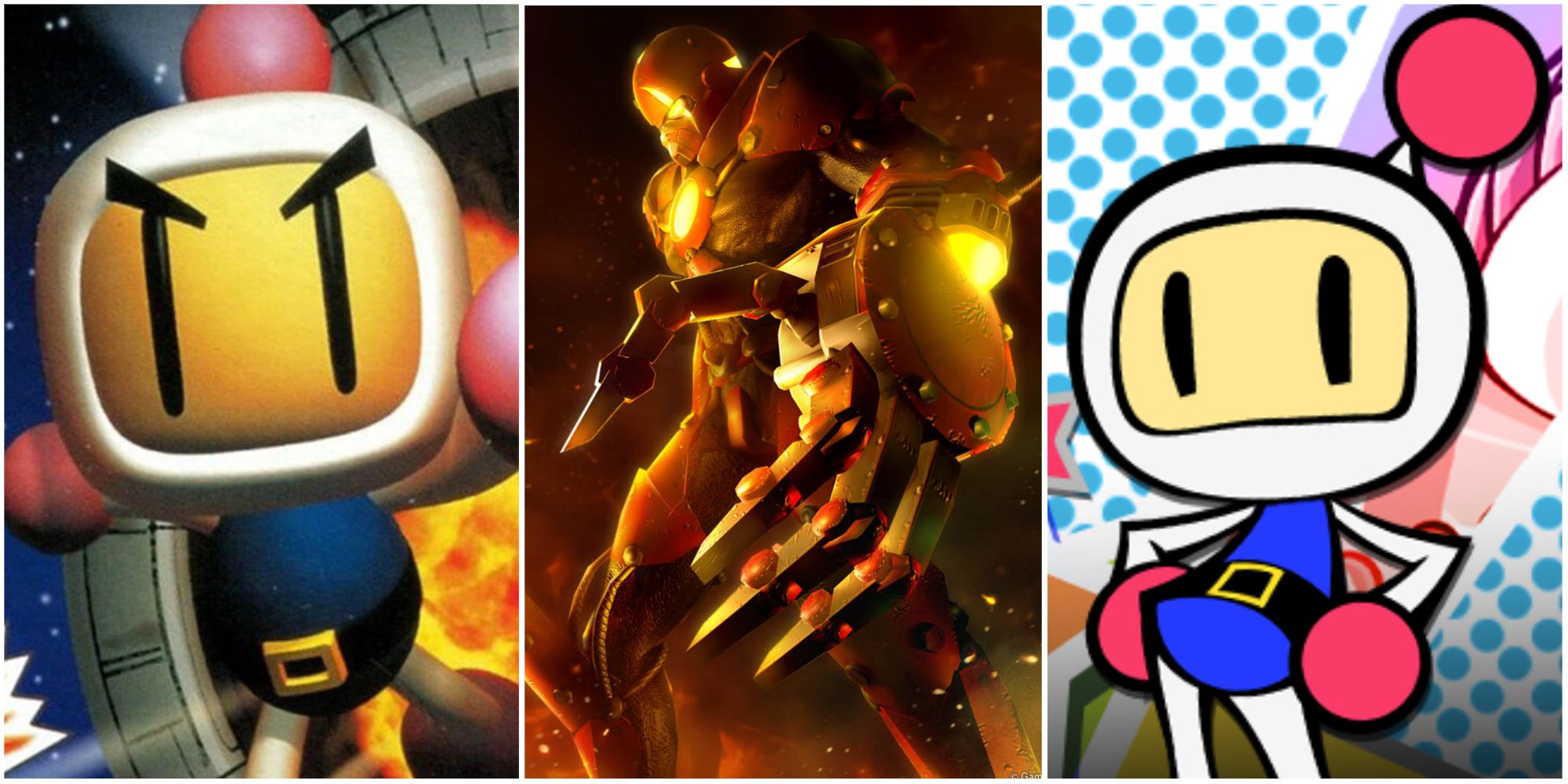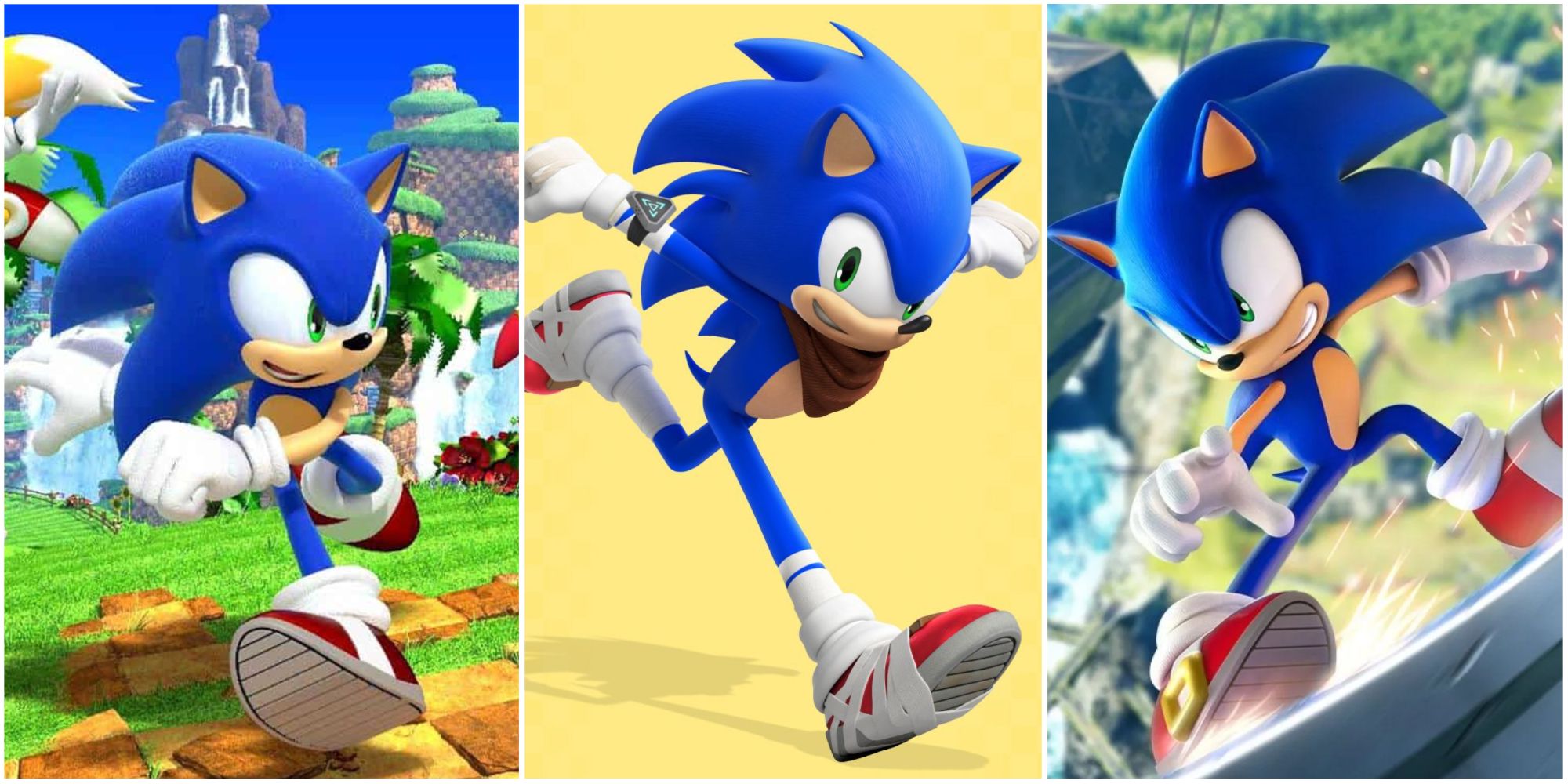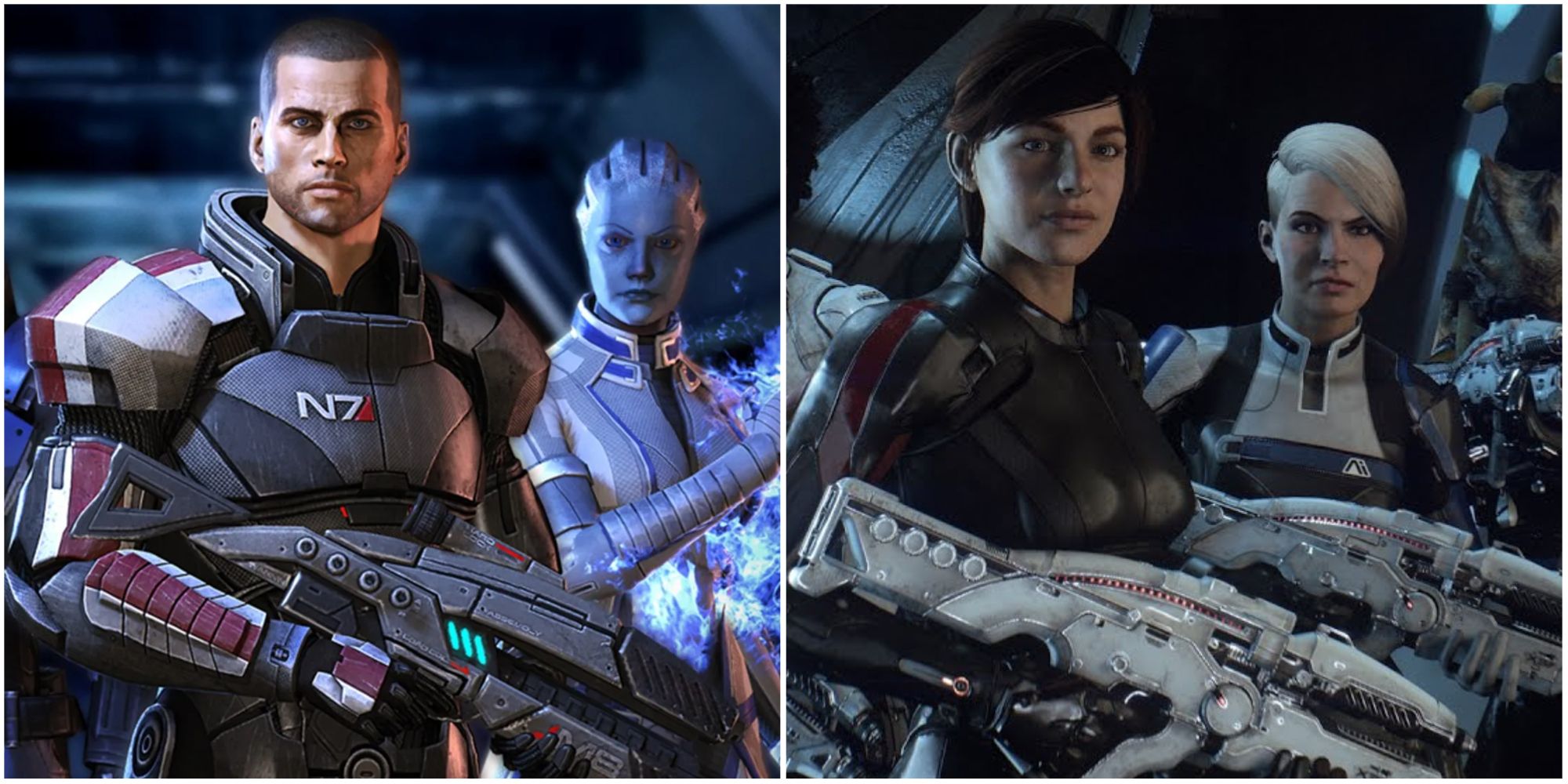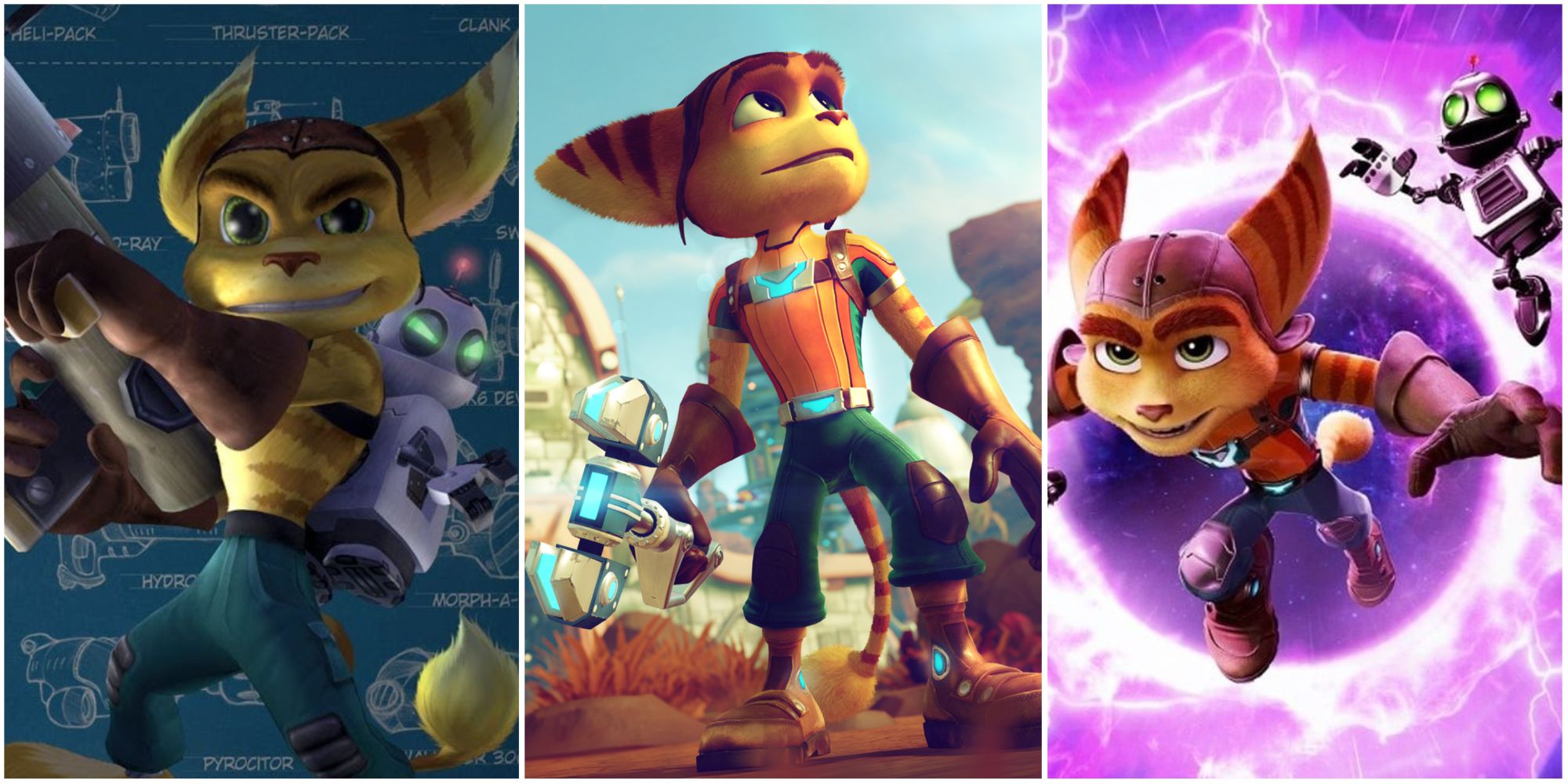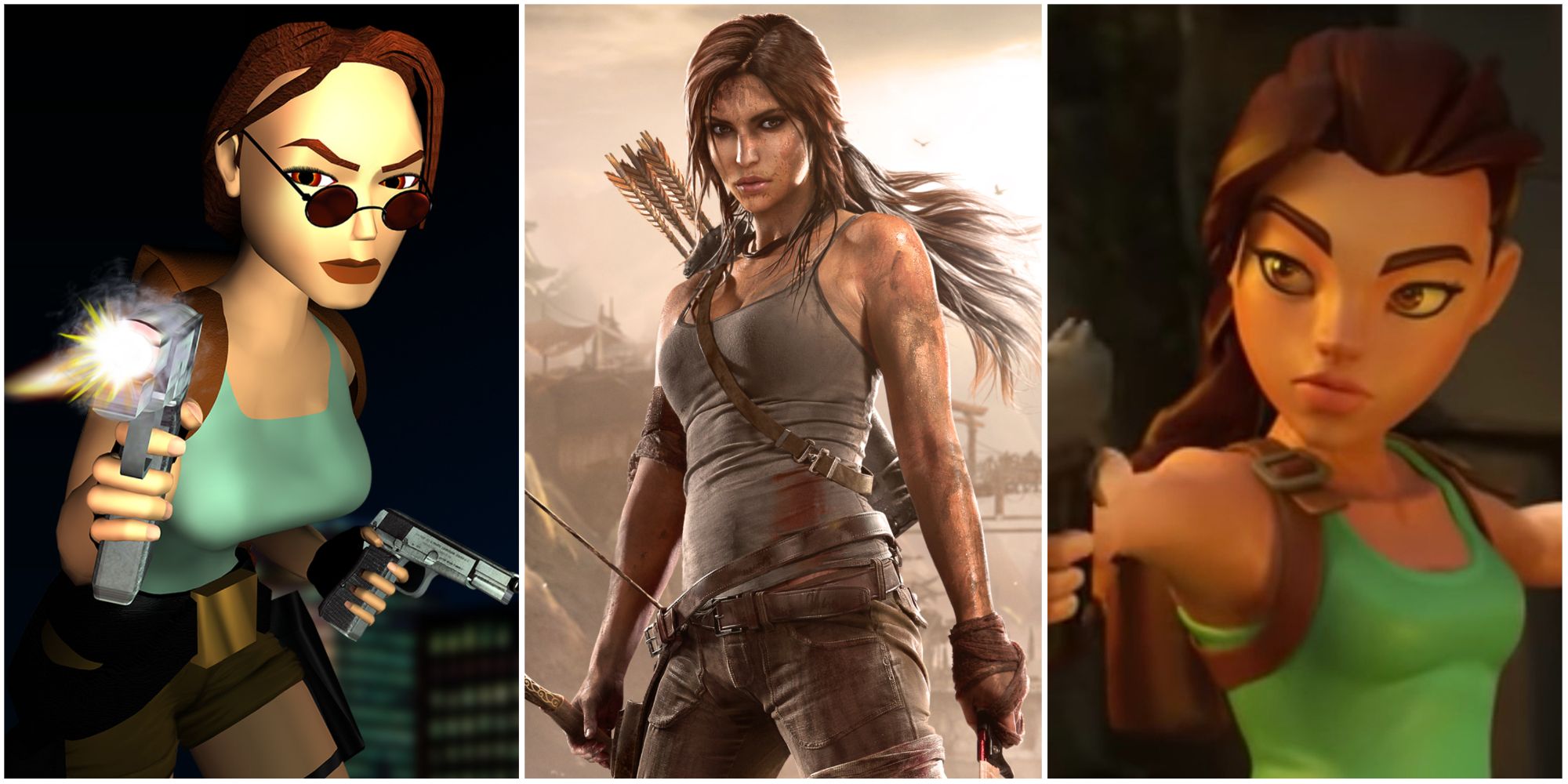Reboots are meant to reinvigorate, resetting the continuity and/or redesigning the world to breathe new life into a dying franchise. Sadly, that new direction can hit the wrong note with fans. The sales then suffer through this negative word of mouth.
To win back those fans, the creators may go back to the series roots. The games continue where they previously left off, pretending the reboot never existed. While this may seem like a cheap tactic, especially for fringe fans of the new approach, it usually redeems the series in the eyes of devotees. In the end, the games achieve true reinvigoration. You don't know what you have until it's gone.
7 Devil May Cry
This is what many people picture when thinking of failed reboots. Capcom's Devil May Cry gradually evolved into an irreverent monster mash where laid-back hero Dante combats the legions of Hell with swagger and smart-mouthed zingers. It was simple yet entertaining.
Unfortunately, developer Ninja Theory tried to turn it into something else with the reboot, DMC: Devil May Cry. Losing much of the fun, this entry strove for deeper meaning behind the chaos and attempted to draw parallels with the real world. The problem was that it had all the subtlety of a brick. It seemingly catered to naval-gazing hipsters who hate the world: a mindset encapsulated in a stiffer and more unlikeable Dante. Needless to say, fans rejected this topical approach, missing the unabashed camp of older games. Devil May Cry 5 went back to that continuity and craziness and won the fans back as a result.
6 Crash Bandicoot
The Crash Bandicoot series struggled after Naughty Dog left. Running, jumping, and dashing through a Saturday morning cartoon still appealed, but the sequels made the humor more desperate and padded the gameplay with vehicles and other intrusive additions. All of this culminated in Crash of the Titans (and Mind over Mutant), which radically redesigned the characters and oriented gameplay toward repetitive combat. Although innovation sounds enticing on paper, its lackluster execution here failed to revive the dying franchise.
Where the series succeeded was in going back to basics. The Crash Bandicoot N. Sane Trilogy remade the first three games for modern consoles, and it generated enough buzz to warrant a follow-up. Enter Crash Bandicoot 4: It's About Time. This title picked up from where the third game left off and fine-tuned the platforming challenge to a tee. As such, many fans consider it the best in the series.
5 Bomberman
Bomberman was one of the many cute mascots of the '80s and '90s. His style was fairly rudimentary, but it was also surprisingly strategic and entertaining. Players navigated mazes, defeated enemies, and demolished obstacles, all by carefully placing bombs. It created an amusing contrast with the innocent aesthetic, which stimulated fans with its sense of enjoyment. That's why it was so confusing when the series threw that aesthetic out the window.
The reboot--Bomberman: Act Zero--opted for a nihilistic sci-fi look akin to Doom or Metroid. It brought the whole mood down. The same could be said for the gameplay, which was essentially the same yet far clunkier. This is why subsequent Bomberman entries moved beyond the dark chapter in his life. Many of them may have been handheld or mobile titles, but they at least looked and played like the games of old.
4 Sonic The Hedgehog
You wouldn't think Sonic had much to mess up. The hedgehog thrived on linear levels emphasizing breakneck speed and precise platforming, making for a colorful romp of cartoonish cheese and infectious adrenaline. Sadly, Sega kept adding gimmicks like hoverboards, time travel, and transformations to keep the series relevant. However, that desperation was nothing compared to what Sanzaru Games did with Sonic Boom: The Rise of Lyric.
This maligned game redesigned the heroes with new clothing items and body shapes, slowed things down for open-world collecting, and filled that world with sitcom jokes. With the accompanying games and TV show, the creators clearly intended Sonic Boom as the start of a new era. That said, Sega was bent on the franchise's past, as the in-house team ignored the Boom universe in subsequent entries like Sonic Forces and Sonic Frontiers. No more scarf for the blue blur. Considering the poor response to the mainline games, however, maybe fans ought to rethink this reboot.
3 Mass Effect
The Mass Effect trilogy grew into arguably BioWare's most successful property. It was an epic space adventure rife with intriguing characters, engrossing worlds, and impactful consequences for role-playing choices. As Commander Shepard, players soared across the galaxy with a colorful crew to stop the cataclysmic machines known as the "Reapers." This conflict came to a head in a climactic--albeit controversial--conclusion. After a few years' rest, the developers sought to restore fans' faith through a new journey.
Mass Effect: Andromeda tried to create a novel narrative about exploration, complete with a ton of fresh faces manning the ship. Tragically, a gaggle of glitches compounded the mediocre writing and dumbed-down mechanics. Not only would BioWare put this branch of the series on indefinite hold, but they later remastered the original trilogy in the Mass Effect Legendary Edition. This reignited passion for Shepard's saga so much that a fourth entry is in the works, leaving the Andromeda crew adrift.
2 Ratchet & Clank
This platforming space shooter spoof was a constant cash cow for Insomniac. The series saw a steady stream of releases on the PS2 and PS3, each having Ratchet & Clank tackle aliens, robots, and evil corporations galore. It was ultimately a mixed bag, however, as the Future titles took the edge off the humor and made the stories increasingly contrived.
Those problems came to a head with 2016's Ratchet & Clank. Tying into the movie released the same year, this title rebooted the duo's origins while taking them through several remade levels from the first game. It suffered an identity crisis as a result, especially since the writing and presentation severely lacked the original's spice. For this reason, Insomniac passed it off as non-canon. The next game--Rift Apart--picked up from where the Future series ended, positioning the protagonists as seasoned saviors of the galaxy. The script is still bland, but the unwanted elements from the movie are gone, leading to a more inspired adventure.
1 Tomb Raider
This is a bizarre care of flipflopping. Tomb Raider was always about globe-trotting treasure hunts. The old games enhanced that with a spy style and a confident, charismatic heroine in Lara Croft, who shot anyone in her way with her twin pistols. As big as it initially was, though, the franchise floundered in the mid-2000s.
This led to a reboot in 2013. While it fashioned an origin story for Lara Croft, she wasn't the tough treasure hunter whom fans remembered. She navigated Uncharted-esque set pieces by the skin of her teeth, and these escapades took a physical and emotional toll. Although this approach bothered longtime loyalists, it was successful enough to spawn a trilogy. Why would publishers go backward with a winning formula?
Well, between AAA releases, Tomb Raider saw smaller titles like Lara Croft and the Temple of Osiris. These returned to the adventurous style and self-assured Lara of prior games. The upcoming Tomb Raider Reloaded will follow that example. Apparently unable to decide which version to focus on, the series tried to maintain both to please multiple generations. It's an interesting compromise, to say the least.

